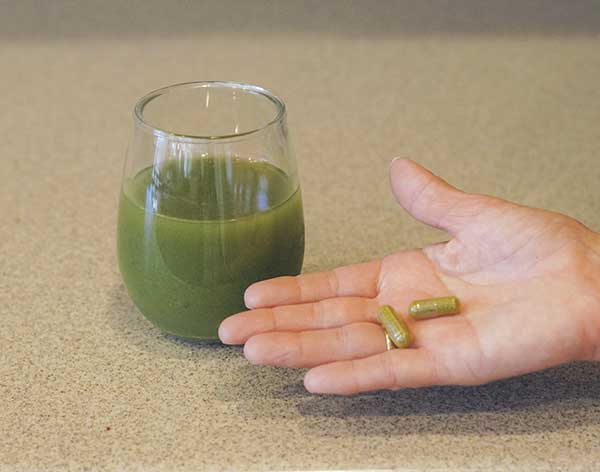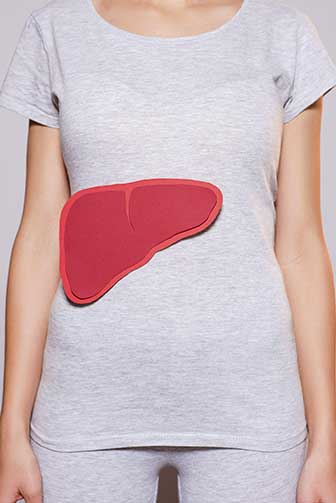As the end of the year festivities approach, tips on detox diets are common. Focused on removing toxins from the body. these diets promise rapid weight loss and swelling reduction and are therefore attractive during the end of year festivities, marked by fatty foods just before the summer holidays.
Despite its wide media coverage, Dr. Douglas Carignani, gastroenterologist and nutrologist, is aware of its risks “a restrictive diet, right after a moment of liver overload, can have the opposite effect to that expected, impairing the functioning of the organ”. In addition, he answered some questions on the topic.

In a technical note, the Federal Council of Nutritionists states “Despite being disseminated by the media as a synonym for weight loss, health and a strategy for cleaning toxins from the body, there is a lack of scientific evidence that supports the use of “detox” or detoxifying diets”. If you want to start a weight loss diet, it is always best to seek medical advice.
IT IS It is increasingly common to come across end-of-year diets that promise to detoxify the body quickly and instantly, such miraculous diets are exhaustively recommended at the end of the year, to get rid of the excesses of supper.
Is there any scientific evidence that these diets really work?

Detoxification is a process to remove toxic products from the body such as alcohol, illicit drugs and thousands of chemical products, exogenous (from outside our body) or endogenous (produced by the body itself), capable of causing some damage to the body. There is scientific evidence, but some products are difficult to remove because they are heavy metals.
What matters most in the end of the year detox diets are related to eliminating the excess of fatty foods, alcoholic drinks and energy drinks that overload, mainly, the liver. We must bear in mind that damage to the organism will always leave some mark, some scar. When it comes to the liver, with each excess it will suffer a little and, even after periods of calm and adequate diet, it will never leave unharmed, it will always leave with a small degree of damage.
Do they pose any health risks?
Every excess leads to damage, there will always be a price to pay! So, thinking about the liver, the organ that suffers the most from excesses and diets, imagine the week of parties with lots of greasy food, drinking, energy drinks and so many other things… The organ that purifies most of all this is the liver . Detox diets, in general, are very restrictive at a time when the liver needs a lot of nutrients to balance the internal environment and repair damage. So you decide on a ginger tea-based diet, as I’ve seen many people do? There are few nutrients and can lead to an overload of the liver, which can develop hepatitis due to the excess of substances contained in ginger and trigger a hepatotoxic reaction.
Is there any recommended method to relieve swelling after supper?
To avoid swelling it is necessary, during supper, to ingest a large amount of water. After supper, continue drinking water, preferably adding lemon slices or mint leaves to the water pitcher. You can also drink small amounts of green tea, always with plenty of water, that is, well diluted green tea.
Are there in fact foods that detoxify our body? Which are?
There are foods that eliminate part of the impurities of the liver and restore its proper functioning, such as cauliflower, cauliflower, broccoli, Brussels sprouts, mustard, turnip, watercress, radish, horseradish, arugula, in addition to a rich diet in insoluble fiber.
What risks can radical diets trigger for health?
Crash diets are often nutrient-poor, leading to nutritional imbalance. It may also happen that large amounts of a certain food are consumed, which, due to its high concentration in the body, can overload it and act in such a way as to cause more harm than good, especially to the liver.
What are the basic care with food that we should have in our day-to-day?
The main concern is moderation. Without abuse and ingesting plenty of fluids and fibers to purify any substance harmful to our body
The abusive use of alcoholic beverages impairs in which aspects to deflate?
The abusive use of alcoholic beverages creates a change in the liver as a kind of irritation, which leaves its functioning temporarily impaired, making it difficult to clear and metabolize alcohol itself and concomitantly ingested food, leading to fluid and toxin retention.
As the end of the year festivities approach, tips on detox diets are common. Focused on removing toxins from the body. these diets promise rapid weight loss and swelling reduction and are therefore attractive during the end of year festivities, marked by fatty foods just before the summer holidays.
Despite its wide media coverage, Dr. Douglas Carignani, gastroenterologist and nutrologist, is aware of its risks “a restrictive diet, right after a moment of liver overload, can have the opposite effect to that expected, impairing the functioning of the organ”. In addition, he answered some questions on the topic.

In a technical note, the Federal Council of Nutritionists states “Despite being disseminated by the media as a synonym for weight loss, health and a strategy for cleaning toxins from the body, there is a lack of scientific evidence that supports the use of “detox” or detoxifying diets”. If you want to start a weight loss diet, it is always best to seek medical advice.
IT IS It is increasingly common to come across end-of-year diets that promise to detoxify the body quickly and instantly, such miraculous diets are exhaustively recommended at the end of the year, to get rid of the excesses of supper.
Is there any scientific evidence that these diets really work?

Detoxification is a process to remove toxic products from the body such as alcohol, illicit drugs and thousands of chemical products, exogenous (from outside our body) or endogenous (produced by the body itself), capable of causing some damage to the body. There is scientific evidence, but some products are difficult to remove because they are heavy metals.
What matters most in the end of the year detox diets are related to eliminating the excess of fatty foods, alcoholic drinks and energy drinks that overload, mainly, the liver. We must bear in mind that damage to the organism will always leave some mark, some scar. When it comes to the liver, with each excess it will suffer a little and, even after periods of calm and adequate diet, it will never leave unharmed, it will always leave with a small degree of damage.
Do they pose any health risks?
Every excess leads to damage, there will always be a price to pay! So, thinking about the liver, the organ that suffers the most from excesses and diets, imagine the week of parties with lots of greasy food, drinking, energy drinks and so many other things… The organ that purifies most of all this is the liver . Detox diets, in general, are very restrictive at a time when the liver needs a lot of nutrients to balance the internal environment and repair damage. So you decide on a ginger tea-based diet, as I’ve seen many people do? There are few nutrients and can lead to an overload of the liver, which can develop hepatitis due to the excess of substances contained in ginger and trigger a hepatotoxic reaction.
Is there any recommended method to relieve swelling after supper?
To avoid swelling it is necessary, during supper, to ingest a large amount of water. After supper, continue drinking water, preferably adding lemon slices or mint leaves to the water pitcher. You can also drink small amounts of green tea, always with plenty of water, that is, well diluted green tea.
Are there in fact foods that detoxify our body? Which are?
There are foods that eliminate part of the impurities of the liver and restore its proper functioning, such as cauliflower, cauliflower, broccoli, Brussels sprouts, mustard, turnip, watercress, radish, horseradish, arugula, in addition to a rich diet in insoluble fiber.
What risks can radical diets trigger for health?
Crash diets are often nutrient-poor, leading to nutritional imbalance. It may also happen that large amounts of a certain food are consumed, which, due to its high concentration in the body, can overload it and act in such a way as to cause more harm than good, especially to the liver.
What are the basic care with food that we should have in our day-to-day?
The main concern is moderation. Without abuse and ingesting plenty of fluids and fibers to purify any substance harmful to our body
The abusive use of alcoholic beverages impairs in which aspects to deflate?
The abusive use of alcoholic beverages creates a change in the liver as a kind of irritation, which leaves its functioning temporarily impaired, making it difficult to clear and metabolize alcohol itself and concomitantly ingested food, leading to fluid and toxin retention.





